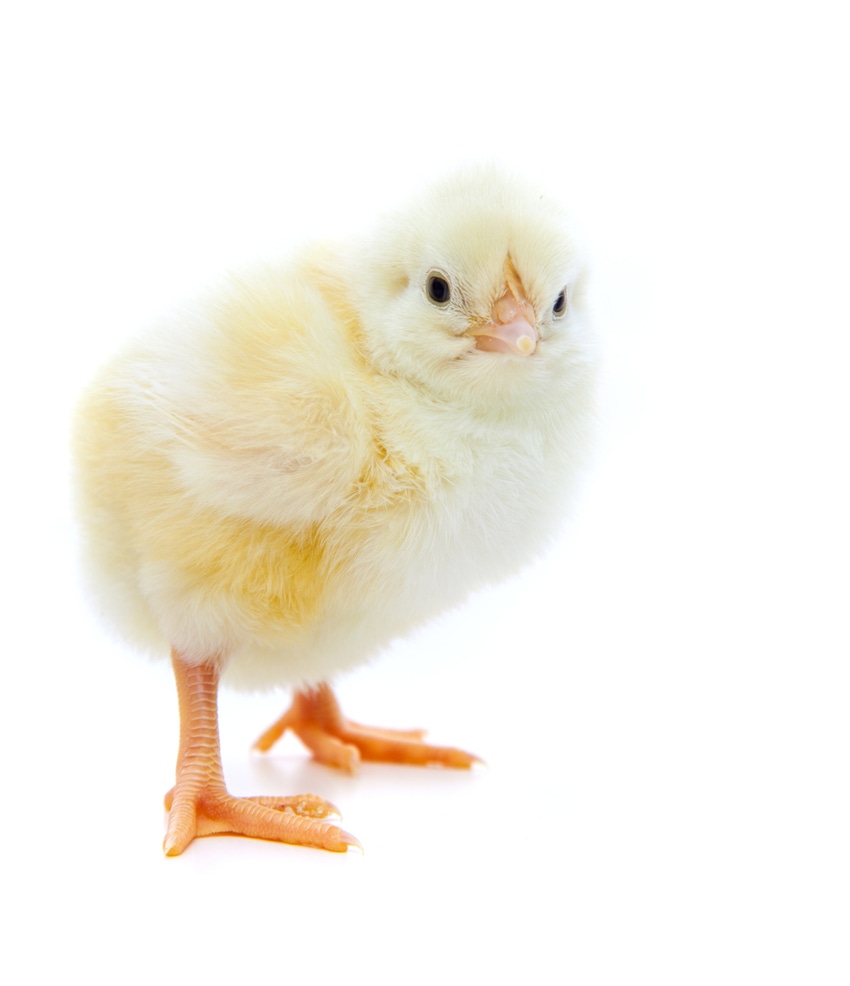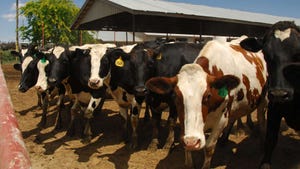Phase I winners of Egg-Tech Prize competition announced
Competition to develop technology that can accurately and rapidly determine a chick's sex prior to hatching.
November 25, 2019

The Foundation for Food & Agriculture Research (FFAR) and the Open Philanthropy Project announced Nov. 22 the winners of Phase I of the Egg-Tech Prize, a competition to develop a technology that can accurately and rapidly determine a chick’s sex as early as possible in the egg production process.
FFAR awarded nearly $1.057 million to six organizations for Phase I of the Egg-Tech Prize, the announcement said, with the Open Philanthropy Project matching the funding, for a total prize amount of almost $2,114 million.
Egg producers can only use female chicks, and male chicks are generally unsuitable for consumption due to poor growth performance and meat quality, FFAR said. Thus, male chicks are culled soon after hatching -- a process known as male chick culling. The practice presents animal welfare concerns, hinders farmer profitability and wastes resources, FFAR added.
However, the challenge is that chicks cannot be sexed until after they hatch, which requires producers to devote time and resources to incubating the male eggs, only to cull them, the announcement noted.
The Egg-Tech Prize incentivizes companies and individuals to develop a technology that can determine the sex of an egg before it hatches and allow male eggs to be diverted to food or animal supply chains or for use in vaccine production, FFAR said. This would solve the issue of male chick culling and improve the sustainability of egg production worldwide.
“Ending the practice of male chick culling is a global concern that is of critical importance to egg producers and animal welfare groups alike,” FFAR advanced animal systems scientific program director Dr. Tim Kurt said. “We are thrilled with the caliber of proposals we received from 10 countries to develop revolutionary technology that accurately predicts the sex of eggs in a timely manner. The successful development of this technology will boost egg producer profitability, improve animal welfare and add billions of eggs to the food supply.”
The Egg-Tech Prize is divided into two distinct phases. Phase I provides the seed funding to develop the necessary technology to compete for the prize. In Phase II, the Prize Competition, contestants will develop and validate a working prototype that meets the Phase II criteria, which were announced Nov. 22 on the Egg-Tech Prize webpage. FFAR will accept Phase II submissions in early 2021. Contestants do not need to participate in Phase I of the competition to apply for or receive an award in Phase II, the announcement noted.
According to the announcement, the following are the six Phase I Egg-Tech Prize winners, with brief synopses of the projects:
1. Abdennor Abbas with the University of Minnesota is receiving a $400,000 award to use an artificial intelligence platform for rapid and non-invasive egg sex identification. All organisms release trace gases in the form of volatile organic compounds (VOCs) and other molecules. Abbas is using a 3D scanner to analyze the geometric shape of the eggs and proton transfer reaction mass spectrometry (PTR-MS) to analyze the VOCs. Additionally, 3D analysis with machine learning will allow researchers to recognize and identify egg sex based on various geometric parameters.
2. Pedro Gomez with Orbem Ai is receiving a $400,000 award, which is matched by outside contributors for a total of $1.14991 million, to develop specialized technology that automatically scans and classifies eggs without touching them. Gomez is using accelerated magnetic resonance imaging (MRI) technology with advanced artificial intelligence. This MRI approach allows Gomez to examine the organ development of embryos to detect physical differences between the males and females, without penetrating the shell.
3. John Humphrey with Microscale Devices LLC is receiving a $251,459 award, which is matched by outside contributors for a total of $416,459, to use multidimensional spectral mapping technology to identify the sex of eggs from 0-12 days of incubation. This technology shoots different wave lengths of light at the egg and detects the refracted light patterns. Artificial intelligence will be employed to develop an optical fingerprint, or signature, that can determine the sex of eggs in less than five seconds.
4. Jeroen Lammertyn with KU Leuven is receiving a $315,370 award, which is matched by outside contributors for a total of $650,842, to use a gender-specific volatile detection technique to determine sex in ovo. Lammertyn is developing a non-invasive ovo sexing technique that registers VOCs that pass through the eggshell during incubation. Lammertyn is using specialized sensor technology, gas chromatography mass spectrometry and selected ion flow tube mass spectrometry to analyze the VOCs.
5. Adam Rivers with the U.S. Department of Agriculture-Agricultural Research Service is receiving a $396,762 award to use fiber optics and machine learning for analysis of VOCs toward in ovo sex determination. Rivers is also using PTR-MS, a sensor designed to detect and analyze the VOC’s composition at a rate of 2,000 samples per hour, to analyze the differences between male and female eggs.
6. Thomas Turpen with SensIT Ventures Inc. is receiving a $400,000 award to develop a microchip-based chemical sensor for early-stage in ovo sex determination. Turpen is capturing and characterizing gases released from individual eggs as soon as possible during storage and incubation. Researchers are developing a chemical sensor chip to detect VOCs and using machine learning to classify the eggs by gender.
"We’re excited to see the industry paying more attention to this major animal welfare challenge," said Lewis Bollard, Open Philanthropy program officer for farm animal welfare. "We hope this work helps the egg industry to make good on its pledge to end the culling of day-old male chicks."
FFAR said the winner of the $4.5 million Egg-Tech Prize in Phase II will be announced in 2021.
You May Also Like

.png?width=300&auto=webp&quality=80&disable=upscale)

